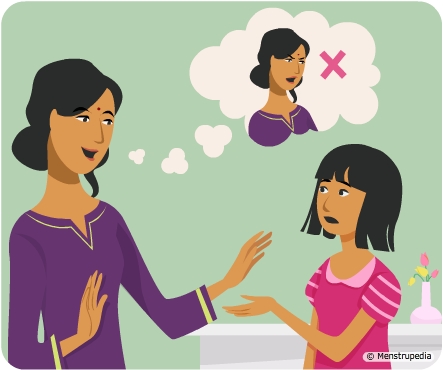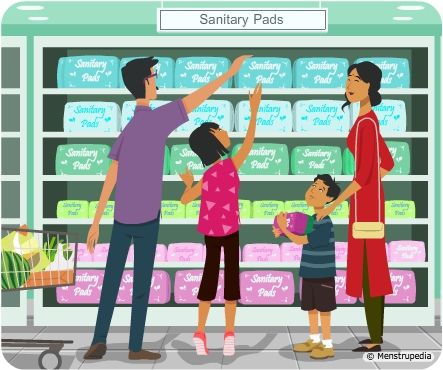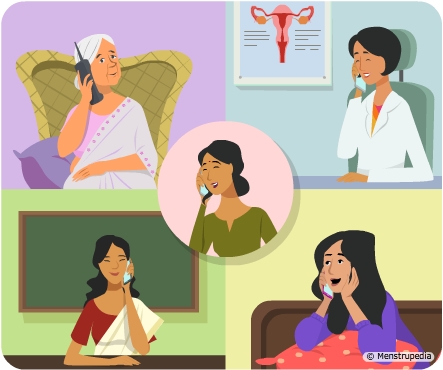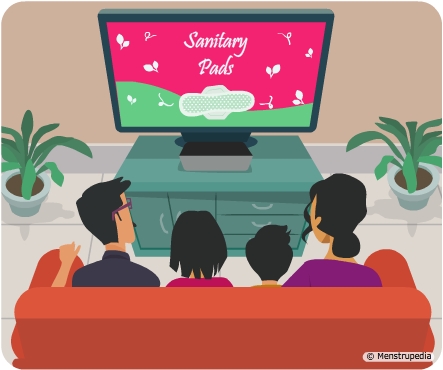How to create a menstruation-friendly environment for your daughter?
Your daughter\’s menstrual experience and her attitude towards her changing body depend, to a large extent, on her environment and the values it reinforces. Here are some ways to redefine your approach and create a consistent, period-friendly surrounding for all.
Be aware of your reactions
Whether it is showing your disgust about a leak, expressing the frustration of your own early period or responding to your daughter\’s mood swings, it is important to pay attention to how you react to period-situations. Consciously shift the focus to reveal a more positive, healthy approach. Be mature, realistic and supportive at all times. Avoid impulsive or demeaning responses, especially when your daughter feels insecure herself.

Involve the men
Educate your son(s) about menstruation and involve both parents in period-related responsibilities. Actively encourage a non-hesitant, open and taboo-free environment at home, resulting in support and understanding from the other gender. Fathers can also have small conversations with their daughters, listen to her experiences, address her concerns or inhibitions, help her shop for supplies together, and perform activities that keep it from being something your daughter must only talk to her mother about.

Have a talk with important people in her life
You can engage with her teachers about sex-ed at school, any problems that might arise in period management, to request for support or just to make sure you are on the same page about her development. Talk to her close relatives or her doctor about what you can collectively do to create a zone of acceptance, and work on issues or disagreements about the way you handle these topics.

Discourage negative period attitudes
Be the first to call out on negative remarks or actions of people towards menstruation. Suppress conversations that refer to periods as a curse, a punishment, or any other negative connotation that comes with it. Expose myths, re-establish appropriate explanations and get rid of the culture of silence. Engage with anyone who might be influencing an unhealthy body image in your daughter. Think about what your experience lacked when you were her age, and what you would be empowered by back then. Take a strong stand against any kind of misinformation, whether it comes from relatives, her peers or others that play a role in her growth.

Period supplies and media images
An important part of how you deal with periods is revealed by how you respond to symbols and objects associated with it. Keep sanitary napkins accessible. Actively end the culture of hiding or being ashamed of period supplies. Begin with yourself, and slowly explain the importance of being transparent with other members at home. Dealing with media images is also crucial. For instance, instead of switching channels in embarrassment when a sanitary napkin advertisement is on, normalize it. You can also talk about the stereotypes or positive/negative meanings that the piece of media conveys. This not only helps to accept it as a natural part of life, but also informs her to analyze and question things that she is told or shown in daily life, and form her own perspective.

Encourage her to communicate
Most importantly, keep a conversation going about the discomforts, sense of shame or insecurity, body image issues, or perceptual difficulties that you or your daughter might have had or presently experience. Make her think of periods as a time to take it slow rather than get stressed about it or think of it as an obstacle. Empower her to go beyond period-related social restrictions and handle problems on her own with confidence and positivity. This helps her sustain herself mentally through any new or unpleasant incidents that might occur in her engagement with society as an adolescent.




